China coronavirus spread is accelerating, Xi Jinping warns
- Published
What's life like in quarantined Wuhan?
The spread of a deadly new virus is accelerating, Chinese President Xi Jinping warned, after holding a special government meeting on the Lunar New Year public holiday.
The country is facing a "grave situation" Mr Xi told senior officials.
The coronavirus has killed at least 56 people and infected almost 2,000 since its discovery in the city of Wuhan.
The US has announced that staff at the Wuhan consulate will be evacuated on a special flight on Tuesday.
The State Department said that private Americans most at risk will also be able to board the flight to San Francisco.
Meanwhile, UK-based researchers have warned of a real possibility that China will not be able to contain the virus.
Travel restrictions have come in place in several affected cities. From Sunday, private vehicles will be banned from central districts of Wuhan, the source of the outbreak.
A second emergency hospital is to be built there within weeks to handle 1,300 new patients, and will be finished in half a month, state newspaper the People's Daily said. It is the second such rapid construction project: work on another 1,000-bed hospital has already begun.
Specialist military medical teams have also been flown into Hubei province, where Wuhan is located.
The urgency reflects concern both within China and elsewhere about the virus which first appeared in December.
Lunar New Year celebrations for the year of the rat, which began on Saturday, have been cancelled in many Chinese cities.
Across mainland China, travellers are having their temperatures checked for signs of fever, and train stations have been shut in several cities.
Allow X content?
This article contains content provided by X. We ask for your permission before anything is loaded, as they may be using cookies and other technologies. You may want to read X’s cookie policy, external and privacy policy, external before accepting. To view this content choose ‘accept and continue’.
In Hong Kong, the highest level of emergency has been declared and school holidays extended.
Several other nations are each dealing with a handful of cases, with patients being treated in isolation.
What is the coronavirus, and what does it do?
A coronavirus is a family of viruses which include the common cold.
But this virus has never been seen before, so it's been called 2019-nCov, for "novel coronavirus".
New viruses can become common in humans after jumping across the species barrier from animals.
The Sars [Severe Acute Respiratory Syndrome] outbreak of 2003 started in bats and transferred to the civet cat which passed it on to humans.
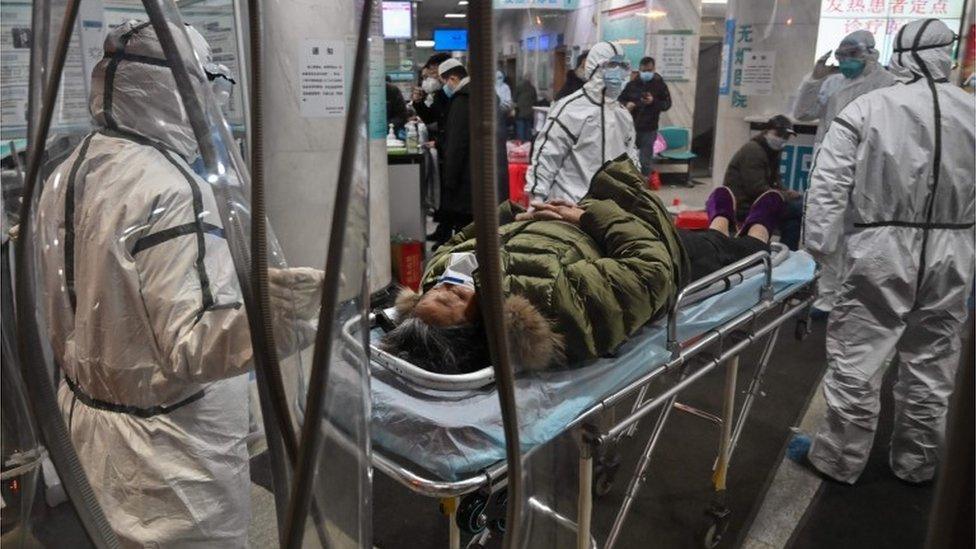
Queues have been growing at hospitals in Wuhan
This new virus also causes severe acute respiratory infection.
Symptoms seem to start with a fever, followed by a dry cough and then, after a week, lead to shortness of breath and some patients needing hospital treatment.
There is no specific cure or vaccine.
Coronavirus: How worried should we be?
Based on early information, it is believed that only a quarter of infected cases are "severe", and the dead are mostly - though not exclusively - older people, some of whom have pre-existing conditions.
The Chinese authorities suspect a seafood market that "conducted illegal transactions of wild animals" was the source of the outbreak.
Why is there concern about containing the virus?
Scientists at the respected MRC Centre for Global Infectious Disease Analysis in the UK have warned that it may not be possible to contain the virus to China.
They say self-sustaining human-to-human transmission of the coronavirus is the "only plausible explanation" for the scale of the epidemic.
Their calculations estimate each infected person is passing it onto, on average, 2.5 other people.
The centre praised the efforts of the Chinese authorities, but said transmission of the virus needed to be cut by 60% in order to get on top of the outbreak.
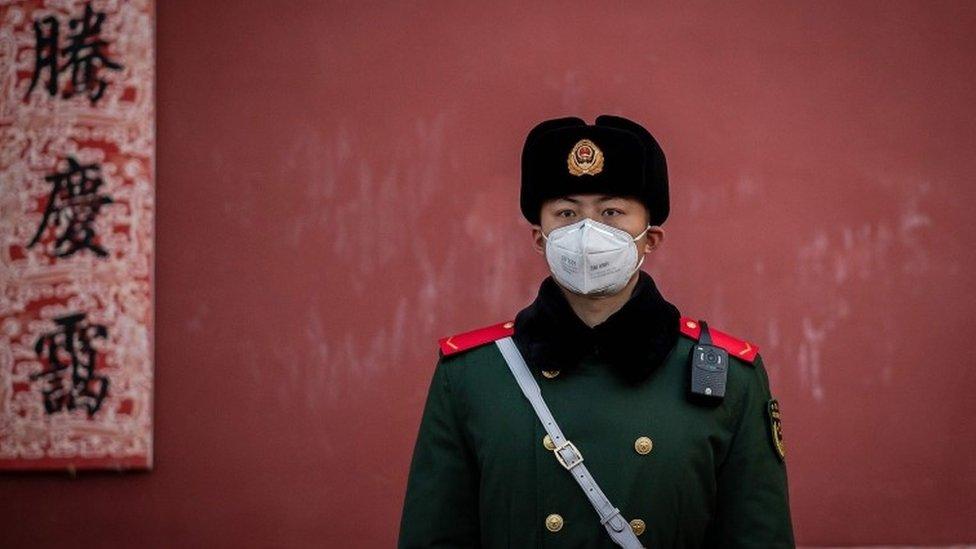
The coronavirus has killed at least 56 people
This is a massive challenge, the scientists suggest, which will require finding and isolating even patients with only mild symptoms that could easily be confused with other diseases.
Elsewhere, a team at Lancaster University have published their estimates of the number of cases suggesting 11,000 have been infected this year. If true, that would be more than Sars.
Where has it spread?
There are now 1,372 confirmed cases across China, though most are concentrated in those provinces closest to Hubei.
But it has also spread abroad - in isolated cases affecting small numbers of patients.
On Saturday, Australia confirmed its first four cases - first in Melbourne, and then three more in Sydney.
It has also spread to Europe, with three cases confirmed in France. Tests in the UK on 31 people have come back negative, the government has said. Officials are trying to trace around 2,000 people who have recently flown to the UK from Hubei province.
The cases largely involve people who had recently travelled from the affected region in China.
China's neighbours in the Asia region are on high alert, however, with cases reported in Thailand, Singapore, Japan, Taiwan, Malaysia, Vietnam, South Korea and Nepal.
There are also two cases in the United States, including a woman in her 60s who had returned home to Chicago from Wuhan on 13 January.
Canada has a "presumptive case" of the virus, but the condition of the person suffering from it is deemed stable, according to a government statement.

What's happening at the source?
The city of Wuhan is effectively on lockdown, with heavy restrictions on travel in and out, and public transport options from buses to planes cancelled.
It is a major population centre with up to 11 million inhabitants - comparable in size to London.
Pharmacies in the city have begun to run out of supplies and hospitals have been filled with nervous members of the public.

Officials have urged people to avoid crowds and gatherings.
"The whole transport system has been shut down," Kathleen Bell, who is is originally from the UK and works in Wuhan, told the BBC. "From midnight tonight private cars are not allowed on the road. And taxis aren't running."
Major Western brands such as McDonald's and Starbucks have closed in the city and in others nearby.
The US, France and Russia are among several countries trying to evacuate their nationals from Wuhan, reports say.
The WHO's regional director gives some measured advice on the outbreak
China is also suspending from Monday all foreign trips by Chinese holiday tour groups, state media reported.
The outbreak has severely restricted Lunar New Year celebrations in China, when millions of people normally travel home. Major public events have been cancelled and tourist sites shut.

Learn more about the new virus

Your questions: You asked, we answered
The story explained: How worried should we be?
Wuhan profiled: The city now in lockdown
In detail: Follow all our coverage here

Are you in China? Have you been affected by the lockdown in various cities? Email haveyoursay@bbc.co.uk, external.
Please include a contact number if you are willing to speak to a BBC journalist. You can also contact us in the following ways:
WhatsApp: +44 7756 165803
Tweet: @BBC_HaveYourSay, external
Send pictures/video to yourpics@bbc.co.uk, external
Please read our terms & conditions and privacy policy
- Published31 January 2020
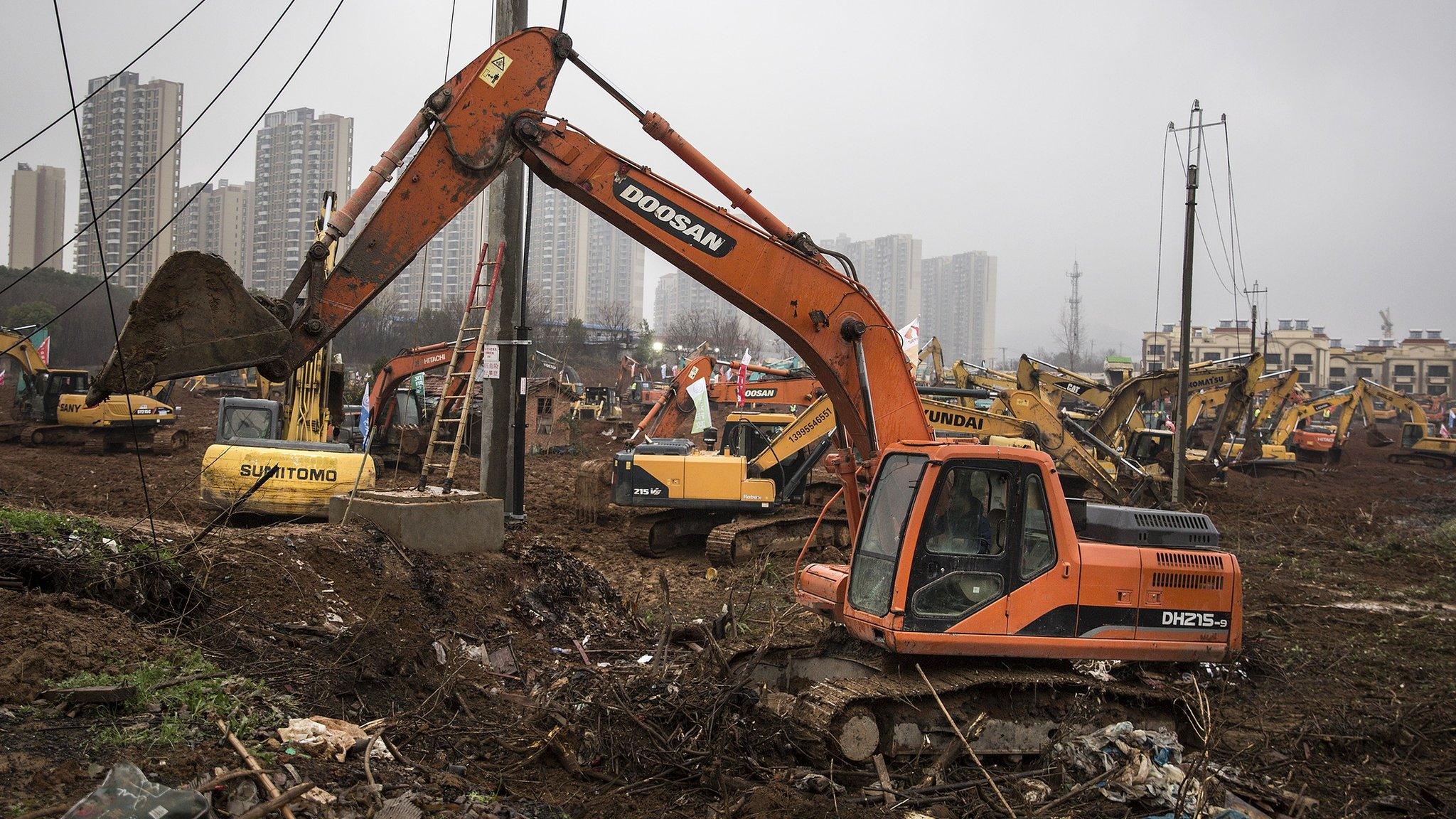
- Published23 January 2020
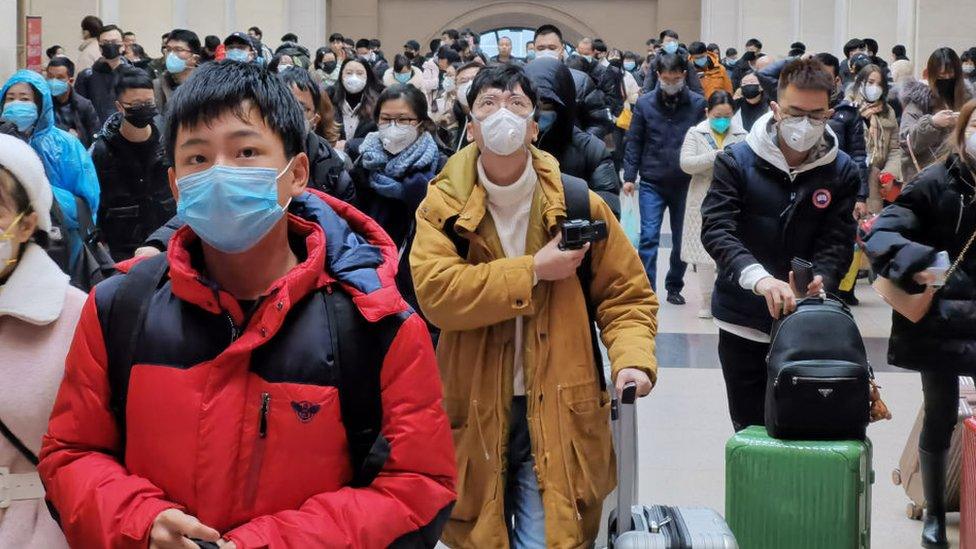
- Published22 January 2020
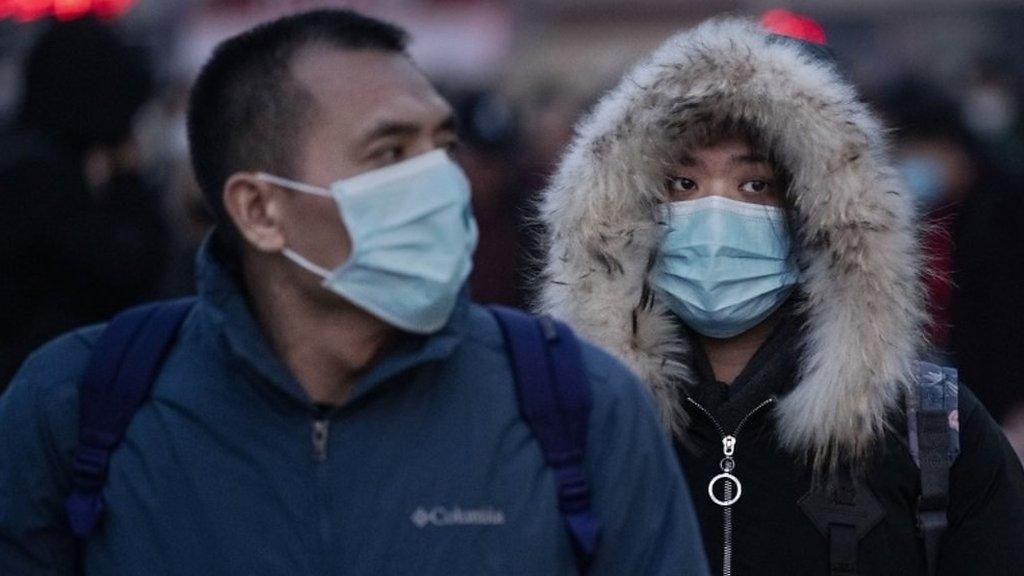
- Published21 January 2020
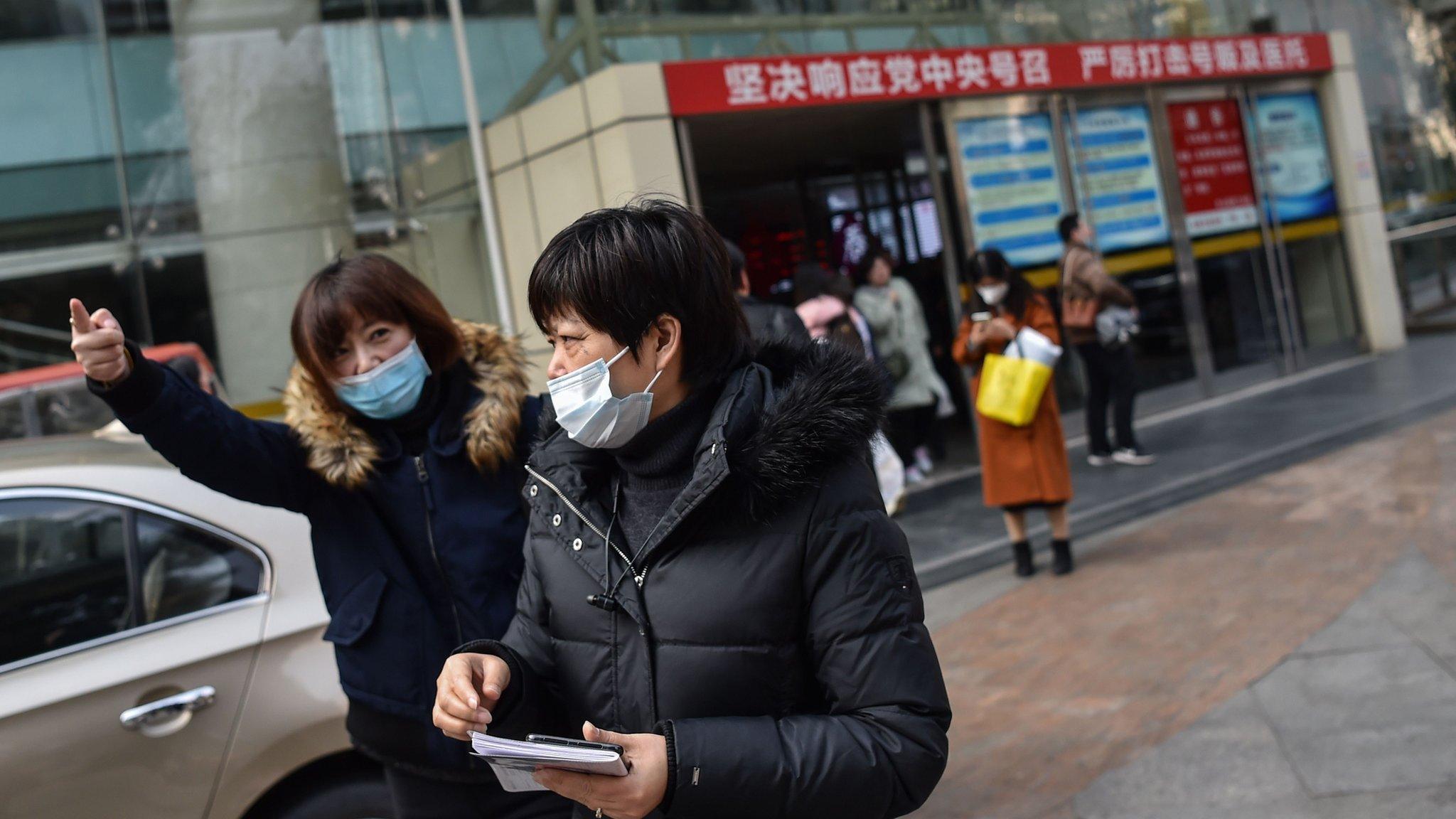
- Published22 February 2022
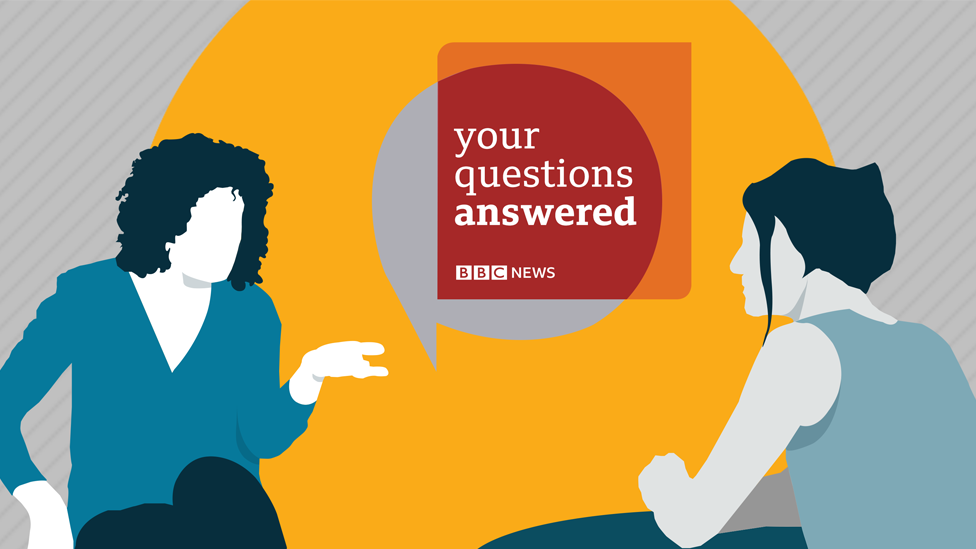
- Published6 October 2021

- Published21 January 2020
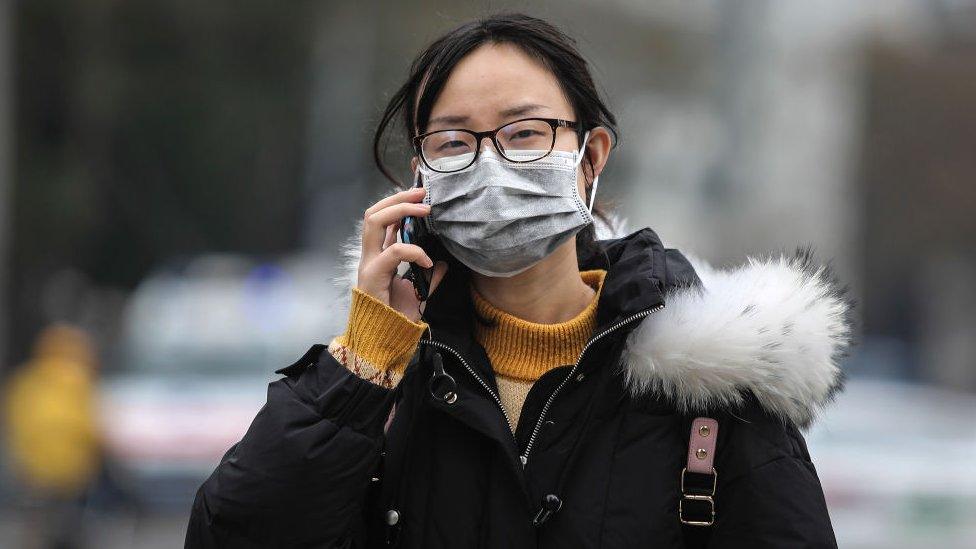
- Published18 January 2020
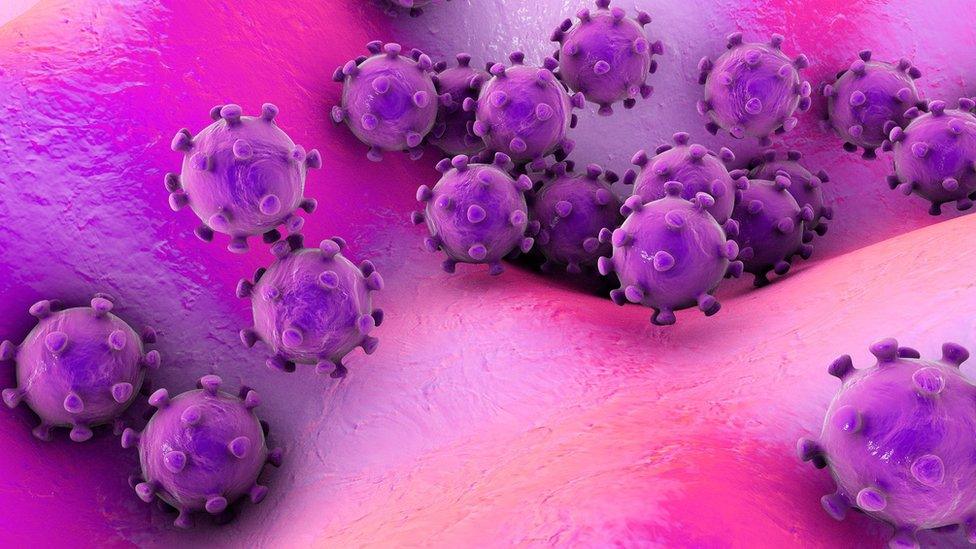
- Published24 January 2020
